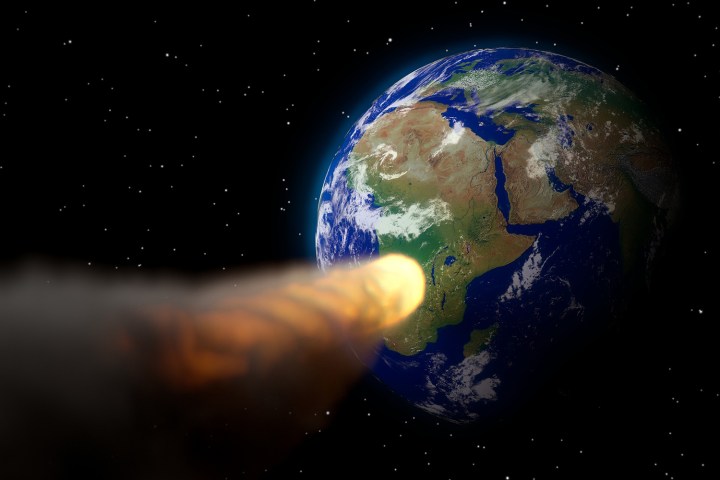
Conducted by a team of researchers from the University of Southampton in England, the experiment compared seven effects, including heat, flying debris, tsunamis, wind blast, seismic shaking, and cratering. Using a computer model, the researchers simulated an asteroid assault on Earth and ranked the outcomes based on which effects would kill the most people.
“We realized that no study had previously been performed which directly compared the various asteroid impact effects in terms of how harmful they are for human populations,” Clemens Rumpf, lead author of the study, told Digital Trends. “Previous studies have looked at individual impact effects and have made statements about their potential for destruction, but not within the framework of a coherent comparison.”
Asteroid impact effects vary in intensity and kind. Tsunamis, for example, would impact people inland differently and to a lesser extent than those on the coast.
To calculate the power of each impact effect, Rumpf and his team used an online simulator called Impact Earth, bombarding the planet with 50,000 asteroids in various regions.
“Using such a large sample size increased our confidence that we capture many of the impact scenario nuances that the global population distribution, the geography … and asteroid impact conditions … can offer,” Rumpf said.
They then estimated how many fatalities would result from each of these effects. The results showed that wind blasts and shock waves would likely do the most damage, accounting for over 60 percent of the lives lost. Thermal radiation, tsunami, flying debris, cratering, and seismic shaking followed in the ranking.
“A big take away is that land impactors are much more dangerous than water impactors because the former are naturally closer to population centers,” Rumpf said. He also pointed to the dominance of aerodynamic effects — strong winds and shock waves — that can be seen in infamous impacts like the Tunguska event in 1908, which flattened 770 square miles of Russian forest.
“Such results can be useful when giving advice on how to prepare for an asteroid impact should we find ourselves in that situation,” he added. “Protective places similar to tornado shelters could offer good protection against these types of hazards.”
The researchers published a paper detailing their study today in the journal Geophysical Research Letters.


